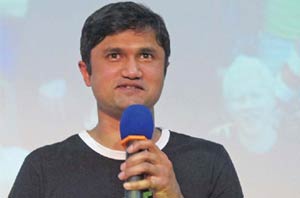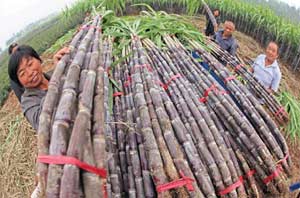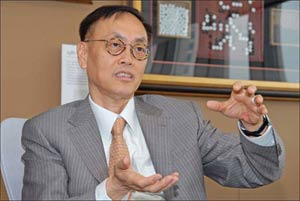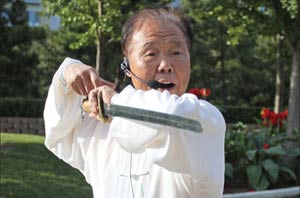Tear down walls of ignorance
Updated: 2011-10-14 11:05
By Feng Zhongping (China Daily European Weekly)
|
|||||||||
Europeans' understanding of China formed during the Cold War era is still widespread
 |
China-EU relations have been relatively smooth and steady recently compared with what they were in 2008. The debt crisis that hangs over the continent makes it increasingly imperative for European countries to strengthen ties - especially economic and trade ones - with China.
Now China and Europe are looking at broadening that cooperation, and Europe would like China to shoulder more responsibilities on the world stage.
But can China and the EU establish a strategic partnership, which is much talked about in China? Many scholars think the gap between the ideal and the reality is simply too gaping.
China-EU relations, unlike China-US ones, do not have divergences of core national interests such as on the Taiwan issue. Why is it so difficult to set up a strategic partnership of mutual benefit? The main reason is probably a lack of mutual political trust. A dearth of such trust makes implementing a strategic partnership highly problematic.
So, first up, both sides need to make a greater effort to enhance political trust. China and the EU should emphasize the importance not only of common interests but also shared values. Yes, China and the EU share many values with each other, even if both are reluctant to acknowledge this.
Among Europeans, the understanding of China formed during the Cold War era is still prevalent. Though China's economic achievements are recognized, efforts and achievements in many other areas are denied or ignored.
In 2009 Kerry Brown, a China expert at Chatham House in London, issued a briefing paper called The UK and China: Dealing with a New-Old Friend. In it, Brown pointed out that "part of the challenge in stating China's importance and the political need to take a risk in creating a special relationship with it, at government level, is that China still arouses complex, antithetical feelings in much of the Western public. There are negatives for many, such as Tibet, Taiwan, human rights, the death sentence and long-standing rule of communists. Explaining the complexity of China to the electorate is not easy."
It is not only the voters of Europe who lack a comprehensive and objective understanding of China; the elites have the same problem, politicians and officials included.
If Europeans cannot see China and its many dimensions they will be unable to understand its foreign policy, in particular its stances regarding the international system.
If Europe cannot or will not judge China objectively, it is difficult for both sides to form political and strategic mutual trust, not to mention deepen cooperation in many other fields.
European countries, and the US and Japan, are preoccupied about what kind of attitude a rising China will adopt toward the existing international system. In trying to gauge that attitude they have looked for clues in China's diplomatic performance, such as during the climate change conference in Copenhagen in 2009 or China's reactions to the issues of the Diaoyu Islands and the South China Sea.
China has always been a cautious international participant, and does not, and never will, challenge the existing international systems. After the reform and opening-up, China's economy has been integrated with that of the world. China's interests are entwined with those of the rest of the world. In the future China will be looking for unreasonable, unfair and outdated systems to be reformed. And that is exactly it: China is a reformer, not a revolutionist.
But China is also a realist. Even though the international system is far from perfect, China realizes that reforming it demands a lot of time and long, complex processes, something that cannot be achieved through its efforts alone. Thus, China and EU have adhered to international rules of conduct in international political and economic affairs, despite different cultural backgrounds, religious beliefs, and political systems.
So-called values are a general concept about what is right and what is wrong, guiding humans in deciding rules and standards of behavior. China and Europe have a lot in common but also have many differences.
With the increase of common interests between China and Europe, we have consensus about the world's future. By comparing the speeches or comments of leaders and elites from China and Europe, it is clear that the world has entered a multi-polar era, and everyone agrees that no country or regional organization can tackle global challenges alone without a multilateral framework. Such is the case with climate change, terrorism and the non-proliferation of weapons of mass destruction.
China and Europe are as one in recognizing that resorting to force cannot solve regional and international disputes. Political dialogue and negotiation is the right way. On the issue of Iraq, for example, China, France and Germany took the same attitude and opposed the US-led invasion in 2003. Behind such unity of thought lie common values on international issues.
The most obvious difference of opinion between China and Europe is on the question of so-called humanitarian intervention, a recent case being the civil war in Libya. China thinks that military intervention by external forces is not the best way to solve the issues of a country. On that issue, neither side is easily persuaded on the merits of the other side's arguments. However, China and France have achieved some agreement on the UN-led post-war reconstruction of Libya, giving both sides common ground on which to work.
As for the value of national management, the difference between China and Europe is not as great as we often think. China, as a developing country, lags behind European countries in many aspects. So the focus of the Chinese government's policies is to improve the living standards of Chinese people, and expand the opportunities for the public's participation in politics. This is what the Chinese government is doing. The Chinese government is trying to explore a way appropriate to its own situation in developing democracy, and drawing on Western experience.
China is a complex country, and to have a proper understanding of it, policymakers and advisers of European countries need to take serious heed of its official statements, such as the white paper China's Peaceful Development, published by the State Council Information Office on Sept 6. In Western countries the public generally treat statements put out by governments with skepticism or cynicism, but if Westerners want to know about Chinese foreign policies, official statements can be regarded as a reliable source.
In saying that "explaining the complexity of China to the electorate is not easy", Kerry Brown was dead right. But if Europe really wants to establish a strategic partnership with China, it will need to properly understand the radical changes that have taken place in China's economics, politics, society and culture over the past 30 years.
One thing that will enhance Europe's trust of China is if the country is more active in international affairs. As a developing country, focusing on domestic development is understandable, but as the second largest economy in the world, China is not just an ordinary one.
More importantly, China has successfully integrated itself into the international economy in the past 30 years. The international environment will give a bigger influence to China's development. So the country is obliged to forge closer ties with other countries. China and Europe should cooperate closely on the questions of energy security, climate change and other issues.
Finally, we need to be aware that mutual trust between China and Europe cannot be built in one fell swoop. Eliminating misunderstandings takes time, but finding and developing more common interests and shared values will go a long way in helping us to achieve that task.
The author is the director of Institute of European Studies, China Institutes of Contemporary International Relations. The opinions expressed in the article do not necessarily reflect those of China Daily.









